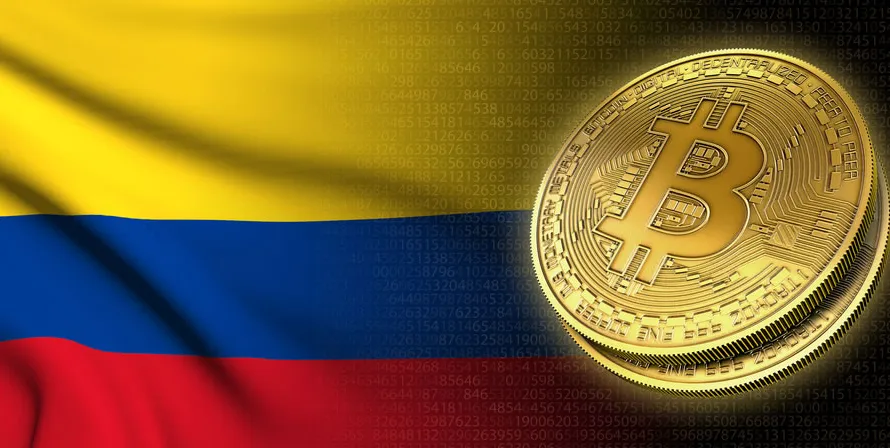The Senate of Colombia is debating a bill that would provide legal clarity and security for crypto-asset exchange platforms and their users.

The bill, already approved by the House of Representatives, aims to enhance the crypto industry by ensuring a regulated, secure, and transparent transition for all stakeholders.
Background
Colombia is one of the most active countries in Latin America in Bitcoin and crypto adoption. According to UsefulTulips.org, it ranks second in the region for peer-to-peer BTC trading volume.
According to Coinmap, hundreds of merchants and ATMs offer Bitcoin services across the country. Colombia also ranks 15th in the world in terms of crypto adoption, according to Chainalysis.
However, the country’s legal framework for crypto is still unclear and inconsistent. At present, Colombia’s laws prohibit its financial institutions from protecting, investing, brokering or managing cryptocurrency operations.
Even so, Colombian citizens have the right to invest, and several legacy financial institutions are paving the way for greater cryptocurrency adoption in the country.
For example, Banco de Bogotá, one of Colombia’s oldest banks, announced last year that it would explore crypto-related services as part of a regulatory sandbox project.
Gemini, a trading platform founded by the Winklevoss twins, partnered with Bancolombia to provide its customers access to four crypto assets: Bitcoin (BTC), Ether (ETH), Litecoin (LTC) and Bitcoin Cash (BCH).
The Bill
In this context, Colombia’s Congress has proposed a bill to regulate cryptocurrency transactions and prevent crypto users from falling victim to escalating fraud.
The bill, numbered 139 of 2021, was unanimously approved by the House of Representatives at the end of last year. However, it still needs to pass the Senate before June 20 to become law.
On May 18, a panel discussion in Colombia discussed the need to regulate platforms where cryptocurrencies like Bitcoin, Ether and Ripple and stablecoins like USDC may be exchanged.
The bill’s regulatory points include the requirement for platforms to register in Colombia, conduct identity verification, separate customers’ funds from the company’s funds, and adhere to the principles of free competition and the free market.
The platforms would also be responsible for educating users and ensuring blockchain security.
Bill 139 of 2021 aims to improve the crypto business by ensuring a regulated, safe, and transparent transition for all stakeholders.
Senator Gustavo Moreno of the Alianza Verde Centro Esperanza Coalición and Project Speaker stated:
“We began to build a solid and transparent regulatory framework whose sole objective is to provide Colombia with a reliable and secure financial market driven by crypto assets.”
He stated that he expects the Commission to vote to expand the Fintech Industry and make the nation a model in Latin America in this regard.
The discussion is slated for the second order of business when the Senate’s Sixth Committee, comprised of 13 Senators, will determine the industry’s future.
Expert opinions
Karen Duque, Bitso’s legal head for Colombia and Brazil, said Colombia could be the second Latin American country to regulate crypto after the Financial Superintendence’s “Sandbox” with major banks and exchanges.
According to Duque, the FTX bankruptcy and loss of resources case is an example of a chance for the region to strengthen legislation to protect consumers of crypto marketplaces.
The expert believes the Colombian crypto law should have a section on licensing for non-financial firms that want to join the ecosystem with license flexibility.
Colombia’s approach toward crypto regulation follows similar efforts by other countries in Latin America. For instance, Brazil has implemented legal requirements to facilitate the expansion of crypto-based financial services.
Argentina has also witnessed a rise in crypto adoption amid high inflation and currency controls.
Fortunately, some countries have taken a more hostile stance toward crypto. Bolivia, for instance, has banned all cryptocurrencies since 2014.
Ecuador has also prohibited its citizens from using or holding any digital currency besides its state-backed e-money system.
